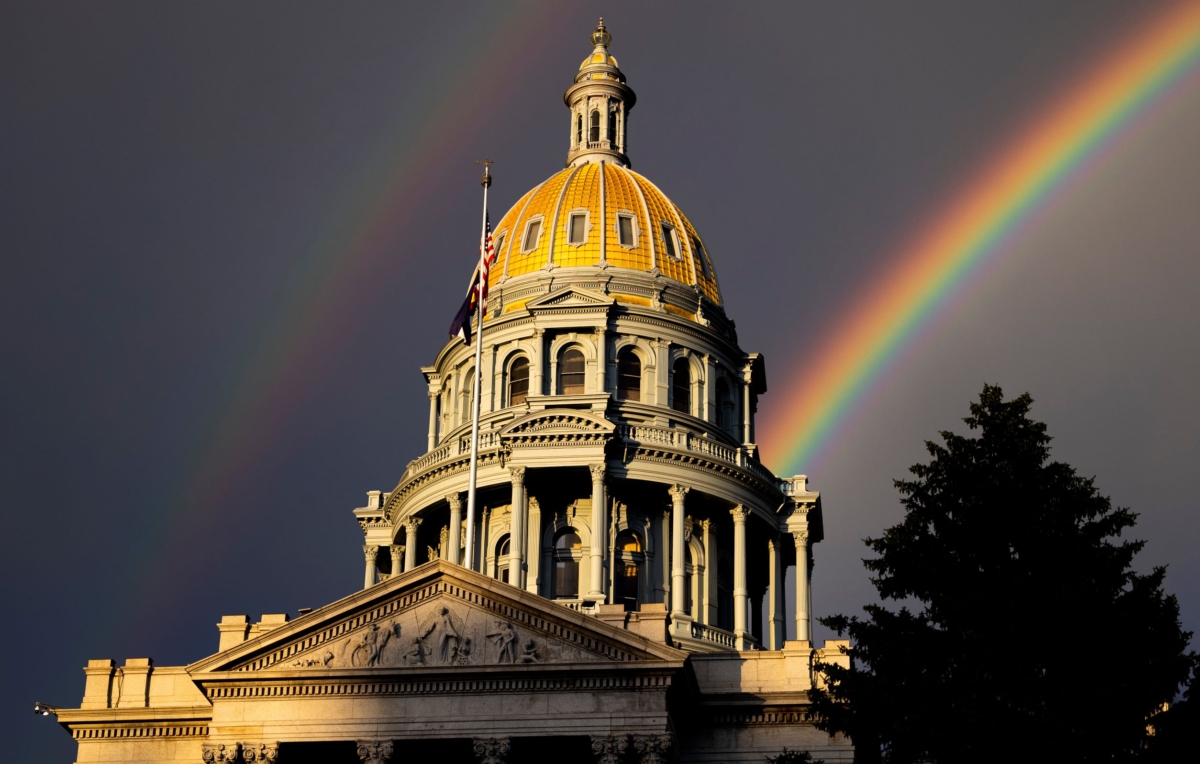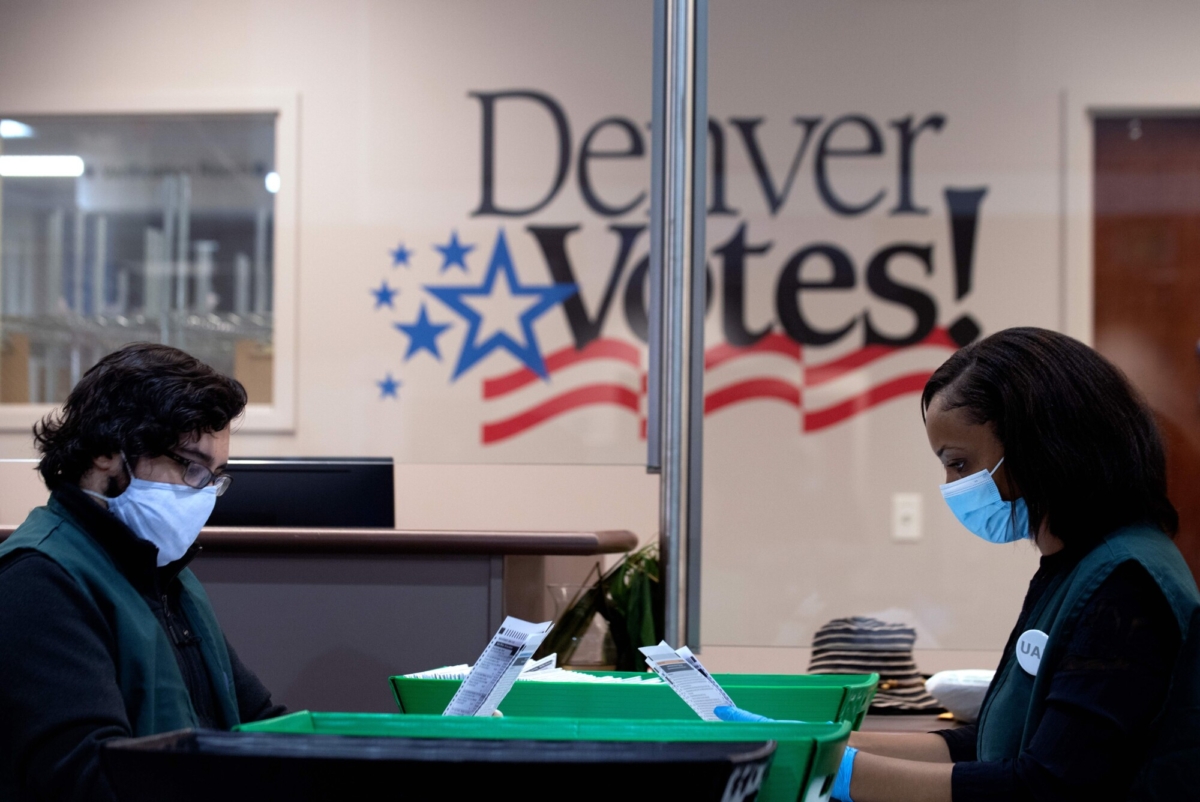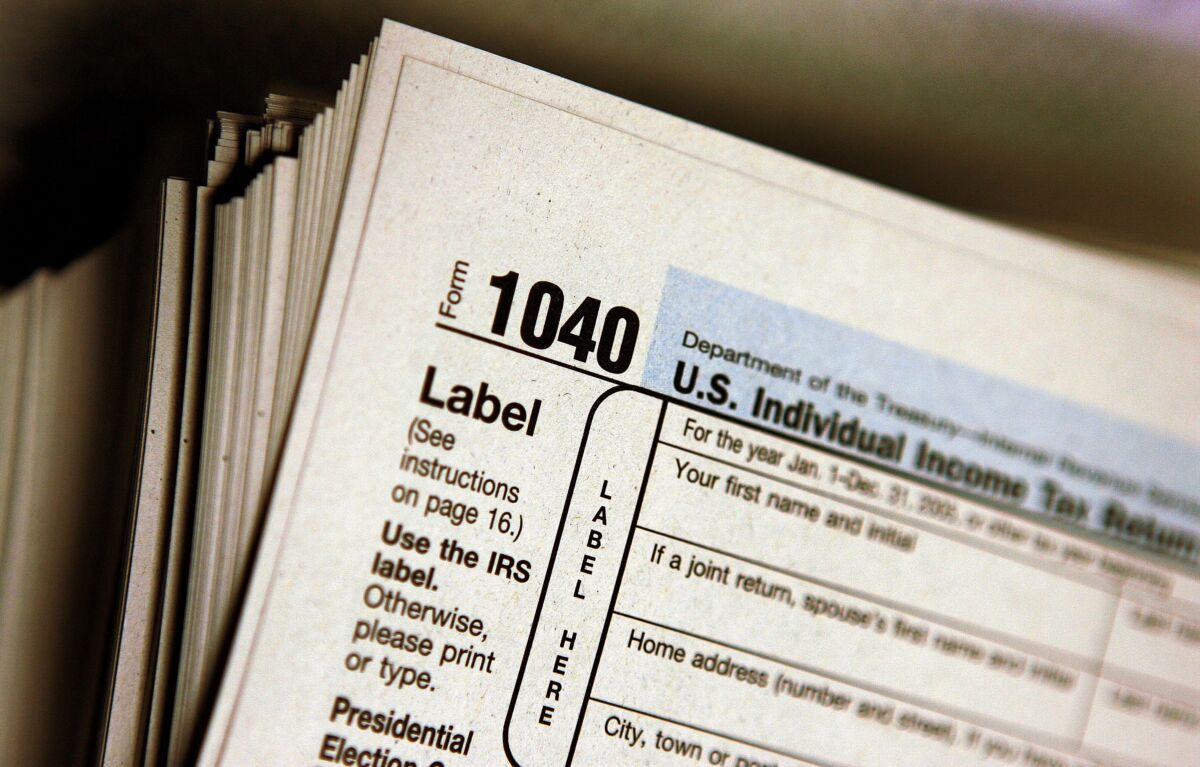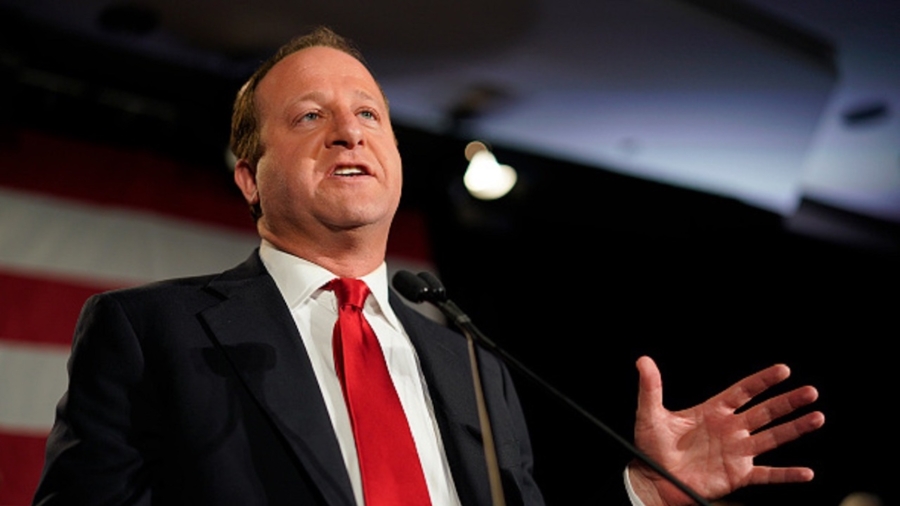Republicans in Colorado’s General Assembly haven’t had much to celebrate over the past few years. With a historic majority in the Colorado House, a supermajority in the Senate, and control of the governorship, in general, Democrats have passed their agenda items and stymied the GOP’s.
Still, one such item, Senate Bill 303, “Reduce Property Taxes and Voter-approved Revenue Change,” also required voters’ approval to take effect. The bill was the Democrats’ plan to address skyrocketing property taxes in Colorado and it passed through the legislature in May over Republicans’ vehement objections.
On Nov. 7, Coloradans soundly rejected the proposal, known as as Proposition HH, in a vote of 60 percent to 40 percent.
To encourage its passage, Democratic Gov. Jared Polis had stated in a press release that SB 303 would “cut the average homeowners’ tax increase in half and deliver long-term relief to protect people, especially seniors on a fixed income, from being priced out of their homes.”
He also said he was confident Prop HH would pass and didn’t outline a backup plan to address Colorado’s historic 40 percent average property tax increase.
Conversely, Republicans argued that Prop HH would essentially gut Colorado’s Taxpayer Bill of Rights, or TABOR—a state constitutional amendment that requires voter approval for tax increases—in exchange for “marginal” tax relief, eventually costing more than the savings provided. They additionally argued that the Colorado legislature could pass a “clean” property tax decrease that wouldn’t require voters to give up their TABOR refunds.
The Republican message proved effective.
In response to the public’s rejection of Proposition HH, on Nov. 9, Mr. Polis called for a special legislative session, beginning on Nov. 17.
“Without the passage of Proposition HH at the ballot, there remains an immediate and dire need for solutions to help Coloradans impacted by rising property values,” Mr. Polis wrote in his Executive Order.
“I am calling this extraordinary session to ask the General Assembly to put people over politics by taking immediate action to provide Colorado taxpayers relief that also balances the interests of local entities funded with property tax revenue. The General Assembly now has the ability to propose a solution that would provide property tax savings to Coloradans while still fully funding schools.”
Defeating Prop HH
“I think it’s clear by a wide margin that voters saw through the deception that was Prop. HH,” Kristi Burton Brown, senior policy advisor for Advance Colorado, told The Epoch Times.
Advance Colorado is a non-profit dedicated to educating Coloradans on limited government, free enterprise, lower taxes, an accountable education system, fiscal responsibility, and firm public policy.
Colorado Republican State Rep. Stephanie Luck agrees and told The Epoch Times, “TABOR says, ‘Government, we understand you have a proper role, and that we need to fund that proper role. So, we’re going to give you this much money. We’re going to allow it to expand by this much every year based on population growth and inflation. And if you end up taking more of our property from us than we have given you authority to take, you either have to ask us to keep it or return it.’

“What Prop HH really sought to do was eliminate that—that principled understanding of the role of property. And I think the people of Colorado said ‘No. No, you can’t continue to take from us without permission or any sort of hindrance. We don’t want to be California. We want to have a say in not only how much of our property you take but also why you’re taking it.'”
On the ballot, Prop. HH read, “Shall the state reduce property taxes for homes and businesses, including expanding property tax relief for seniors, and backfill counties, water districts, fire districts, ambulance and hospital districts, and other local governments and fund school districts by using a portion of the state surplus up to the proposition HH cap as defined in this measure?”
Ms. Brown pointed out that “state surplus” is the excess money owed to taxpayers thanks to the TABOR safeguards, but unless a voter knew that before voting, they wouldn’t know they were giving up their TABOR refunds.
Advance Colorado and its allies campaigned against Prop HH.
“I think Governor Polis and the other liberals who put this on the ballot should take the message that Colorado voters are not dumb, and they can see when they’re being lied to,” Ms. Brown said.

She added that the defeat of Prop HH sends the voter message, “Don’t do relief where you’re stealing our TABOR refunds while claiming its property tax relief. Go back to the drawing board and give us real property tax relief.'”
However, Ms. Luck doesn’t know if that message will resonate with her Democratic colleagues in the upcoming special session.
Repealing TABOR
One of the reasons Colorado has seen historic property tax increases is because in the November 2020 election, Colorado voters approved Amendment B, which repealed the Gallagher amendment. Gallagher required that the state’s total property tax burden be divvied up, with 45 percent collected from residential property and 55 percent from commercial property.
“When the Gallagher amendment was repealed a couple of years ago, the legislature was the one who put that as a request before the people,” Ms. Luck said. “And the people didn’t really understand the consequence of what they were voting on. But the legislators did, and it was talked about. They understood that we would find ourselves exactly where we are today if Gallagher was repealed, yet they went forward without a solution.
“So, one could reasonably argue that that was because they had hoped to eradicate TABOR through creating this crisis of property tax valuations. And to suggest that somehow, they’re doing a service to the people of Colorado by slightly lowering their property tax values while stealing from other pots of money from the citizenry, I find it unfortunate that that would be the narrative that’s put out in terms of this special session.”
She added that though Mr. Polis called for a bipartisan solution in his press conference, and voters told the electorate they didn’t want their TABOR refunds repurposed, she expects Democrats to attempt still to use a “TABOR mechanism” to cut property taxes.

Indeed, during the press conference, Mr. Polis said a “TABOR mechanism” was a possible solution. Speaking on how to backfill lost revenue from property tax relief, Mr. Polis said the legislature in the special session could use “a combination of the 200 million [which was already set aside], a TABOR refund mechanism, or reserves.” He didn’t specify how a TABOR refund mechanism would work.
Like Ms. Luck, Ms. Brown believes the legislature will try to use TABOR refunds in the upcoming session, “I do think legislators are going to attempt to take money from [TABOR] and claim they’re using it for property tax relief.
“I do think they’re going to try it. For them, government always needs to grow. … Their ultimate goal is always to take away that pot of TABOR money that is supposed to go back to the people and to use it for government.”
Ms. Luck pointed out that the government doesn’t need to backfill local governments after reducing property taxes. She said that because property taxes are increasing by an average of 40 percent, most school districts and local governments will experience a “windfall” of funds and are more than capable of working with a reduced budget.
Property Tax Relief
On Nov. 8, Colorado Democratic State Rep. Lorena Garcia posted on X, previously Twitter, “We heard you loud and clear. HH was not good enough. It did not do enough to support middle and low income households or renters. I know we can do better as policy makers to fund schools and local services adequately while providing targeted tax relief.
“If we are to build a truly fair tax system in [C]olorado where the rich pay their fair share, middle and low income earners are not over taxed and the systems we all rely on are funded appropriately, we have to make major reforms to TABOR.”
Similarly, on Nov. 7, Colorado Democratic State Rep. Javier Mabrey posted on X, “Colorado needs a more equitable tax code, we don’t need to be cutting property taxes on $5 million homes. Our schools are underfunded are [sic] essential services are underfunded. We should target tax relief where it is needed to the working and middle class.”
Others, like policy advocate Deep Singh Badhesha, stated on X that Colorado has the “3rd Lowest Property Taxes in the Nation” and that voters want a “Progressive Tax Policy in 2024” that funded education “more.”
In response to those posts, Ms. Brown said, “That is proof that you’re not actually listening to the voters and that you didn’t hear the voters. What the voters said was keep your hands off of TABOR. Leave our tax refunds alone. And, simultaneously, give us real property tax relief.”

As for Colorado having the nation’s third lowest property tax rate, Ms. Brown said, “After the recent property tax hike, Colorado went from 48th in the nation to 35 in the nation.
“And after these next rounds of bills and assessed new rates are paid, Colorado will likely be [the 10th highest] in the nation for property taxes.”
According to the Tax Foundation’s latest report from 2022, Colorado comes in at the middle when considering the overall tax burden. That report does not include the new property tax rates.
“There are senior citizens going into county commission offices crying about property taxes because they don’t think they can afford to stay in the home they’ve been in for years,” Ms. Brown said.
“And in some cases, they’re paid off, but now can’t afford property taxes on it, and it’s hurting working families very deeply in Colorado. You can’t take property taxes and look at them in a silo. You have to look at all the other taxes and fees that have been increased for Colorado families and senior citizens over the last few years. This is one of the reasons Colorado is becoming more and more unaffordable.”

Ms. Luck said she plans to introduce a bill that, if passed, would seek to create a task force with the goal of a “revolutionized tax code.”
“The revolutionized tax code would eliminate all forms of taxes other than a state sales tax. So that would eliminate income tax,” Ms. Luck said. “It would eliminate property taxes; it would eliminate your delivery fees and your gas taxes and every type of tax and fee that the state and its sub-parts—the local jurisdictions, counties, cities, you know, special districts, that they all collect—and create a statewide sales tax.
“And those local municipalities could raise their local rates in the way that they do now to augment their revenue sources, but it would all be through sales tax.”
Ms. Luck acknowledged that her Democratic colleagues likely wouldn’t consider her idea a “progressive” tax and wouldn’t support it.
“From my standpoint, I would like to create that conversation at least to say, ‘What can we do to make our tax code more transparent, accountable, effective, efficient, and fair?’ And do so in a way that eliminates all of these various sources and all these sorts of creations of favoritism in the markets, and restart our economy and have a healthier way moving forward.”

Ms. Luck added that under her proposal, people could genuinely own property, which is not what they enjoy now. “We should allow people, once they own property, to actually own it outright and not have to lease it continually from the government and fear losing it at some point in the future because they can’t pay those taxes.”
Mr. Polis did not respond to The Epoch Times’ request for comment about the special session.
Neither Democrat state Senator and prime sponsor of SB303, Steve Fenberg, nor Democratic state Rep. Chris deGruy Kennedy, also a prime sponsor of SB303, responded to The Epoch Times’ request for comment on the upcoming special session and the defeat of Prop HH.
From The Epoch Times


